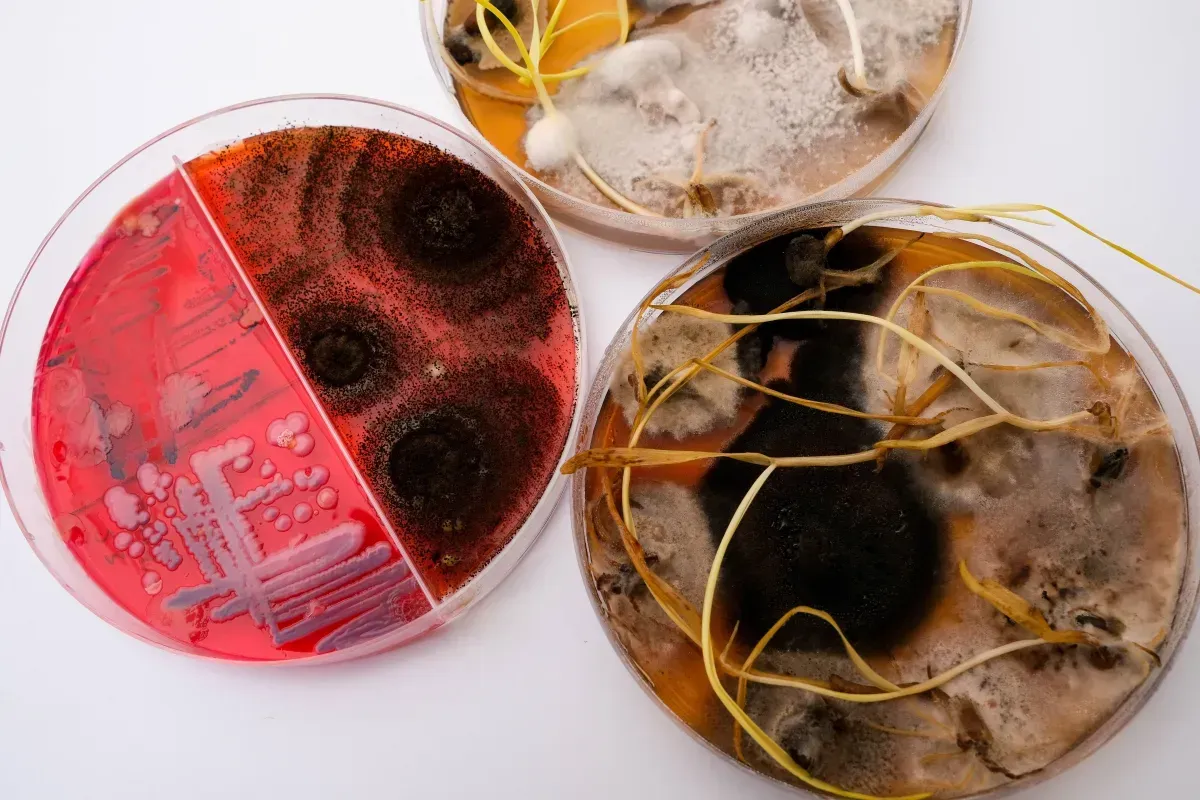Parasites: Gut Health
Parasites are organisms that live on or inside a host, deriving benefits at the host’s expense, and include protozoa, helminths, ectoparasites, and fungi, impacting host health through nutrient depletion, tissue damage, immune responses, and disease transmission.

Description of Parasites:
Parasites are organisms that live on or inside another organism, known as the host, deriving benefits at the host's expense. They encompass a wide array of organisms with diverse structures, life cycles, and varying impacts on their hosts.
Types of Parasites:
Protozoa: These are single-celled eukaryotic organisms, often microscopic in nature. Notable diseases caused by protozoa include malaria, caused by Plasmodium species, and toxoplasmosis, caused by Toxoplasma gondii.
Helminths: These are multicellular worms, including nematodes (roundworms), trematodes (flukes), and cestodes (tapeworms). Examples include Ascaris (a type of roundworm) and Taenia (a tapeworm).
Ectoparasites: These parasites live on the surface of the host and include insects like lice and fleas, and arachnids like ticks and mites. They can transmit diseases such as Lyme disease through tick bites.
Fungi: Though not commonly classified as parasites, some fungi can cause infections. Trichophyton, responsible for conditions like ringworm and athlete’s foot, is an example.
Characteristics of Parasites:
Dependency: Parasites depend on their hosts for nutrition, shelter, and reproduction, often drawing nutrients directly from the host’s body.
Life Cycle: Many parasites have complex life cycles that involve multiple hosts. For instance, Plasmodium species rely on both mosquitoes and humans during their life cycle.
Adaptations: To survive and thrive, parasites have evolved multiple adaptations, such as the ability to evade the host's immune system.
Effects on Hosts:
Nutritional Impact: Parasites can steal nutrients from the host, potentially causing nutritional deficiencies. Intestinal parasites like tapeworms absorb nutrients from the host’s gut.
Tissue Damage: Physical damage to host tissues can occur, such as in the case of Schistosoma worms, which damage the liver, intestines, and bladder.
Immune Response: Parasites can elicit immune responses that lead to inflammation and other health complications. Chronic infections might result in immune system fatigue.
Behavioral Changes: Some parasites, such as Toxoplasma gondii, can alter host behavior to increase transmission rates.
Disease Transmission: Ectoparasites may act as vectors, transmitting diseases to hosts through interactions. Mosquitoes, for instance, are responsible for spreading malaria and dengue.
Conclusion: Parasites are integral to ecosystems, influencing the health and behavior of their hosts. While often detrimental, not all parasitic relationships result in harm; some can be benign or even advantageous, such as mutualistic relationships involving gut bacteria. Understanding parasites is essential in disciplines like medicine and ecology to mitigate their negative impacts and harness their potential benefits.
Role of Gut Imbalances in parasites:
Gut imbalances, known as dysbiosis, play a crucial role in facilitating parasite infections. A healthy gut typically maintains a balance of beneficial microbes that control the growth of opportunistic and pathogenic organisms, including parasites. When this balance is disrupted, the weakened beneficial flora cannot adequately suppress harmful microbes, allowing parasites to thrive and potentially lead to infection.
In the presence of dysbiosis, the immune system may also be compromised. A gut imbalance often results in nutritional deficiencies and an unbalanced internal environment, which weakens the body's natural defenses. This impaired immune response means the body is less capable of combating and clearing parasitic infections.
Moreover, gut dysbiosis allows parasites to disrupt the intestinal environment further, exacerbating the imbalance and creating a cycle that supports their persistence and proliferation. This highlights the importance of maintaining gut health to prevent and manage parasite infections effectively.
